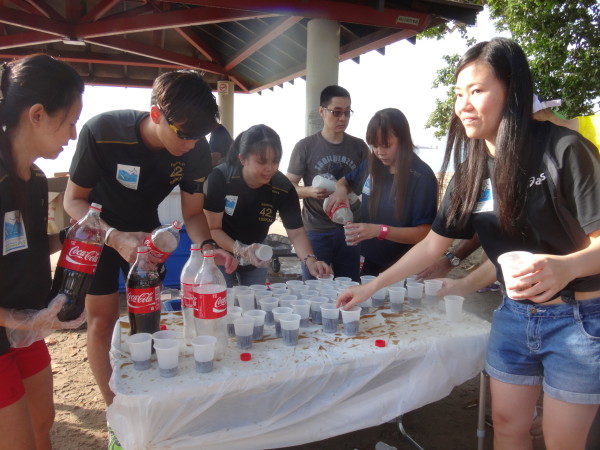Most of the time, we have been taught since childhood, to stay away from coca cola and other fizzy carbonated drinks. However, even though such beverages may contain up to 10 tablespoons of sugar per 330ml can, they may not be entirely bad for you – especially if you are an endurance athlete.
My experiences with drinking coca cola
As a runner, I too, have experienced the wonders of downing carbonated drinks such as coke, during my races. The first time I encountered coke was during The North Face 50km trail race this year, when there was an “unofficial” coke station around the 38km point of the race. Being extremely fatigued and exhausted, the coke station was a very welcome sight.
The second time I saw an “unofficial” coke station was at the recent Standard Chartered Marathon Singapore (SCMS), when a group of friendly runners had set one up, at the 28km mark of the marathon. Once again, this was a welcome sight, as I was feeling quite exhausted at this stage and was starting to feel as though I could not go on for much longer.
Coke is not a health drink
Even though I would not consider coke as a health drink, the combination of caffeine and simple sugars that it possesses, helps to fuel the tired muscles during the final part of an endurance race, when the body wants to give up. And in this way, it gives the body the energy that it needs to propel the athlete to the finishing point of a marathon or a gruelling ultra race. I think that this was probably what I had experienced during my trying races at the SCMS and The North Face.
Drinking flat coke
However that said, the version of coke that the endurance athletes drink is the flat coke, which has been opened and left overnight and the fizz (carbon dioxide gas) has already evaporated.
By drinking flat coke, instead of the standard version of coke and all its gas, this will prevent burping as well as stomach problems in athletes, who will be pushing their bodies to the limit in gruelling competitions.
Coke contains mainly sugar
As we all know already, the main ingredient in coke is refined sugar, which accumulates in the body and may help you to put on weight.
As a result of this, coke has been banned from many school canteens in America and is said to be a leading cause of obesity in the United States.
Coke can be bought easily
But both elite and recreational athletes who burn several hundred, even thousands of calories during gruelling endurance events, drinking coke, which only contain about 150 calories per can, isn’t really going to cause much harm or increase their weight. At the same time, coke is widely available and can be found at petrol stations of even isolated, mountainous areas – unlike isotonic drinks, which are usually localised to specific countries and regions.
So due to the wide availability of coke, athletes doing training in more isolated areas for trail ultra marathon races as well as endurance cyclists, can buy a can of coke to fuel themselves, in the knowledge that it is familiar to them and will not cause any stomach upset problems – unlike purchasing some unfamiliar isotonic drinks that they may have never heard of before.


I skipped the coke stations in TNF and SCMS. Hard to run with air inside my stomach no matter how tempting it was.
However, there’s a trick of getting sugar, if you really just want the sugar in to recharge you a bit.. Gummy Bears! 😀
Yes, the coke is really a boost once in a while, especially when you are running out energy. I took that too during the north face and scsm.
Coca cola makes a good energy booster once in a while. 😀